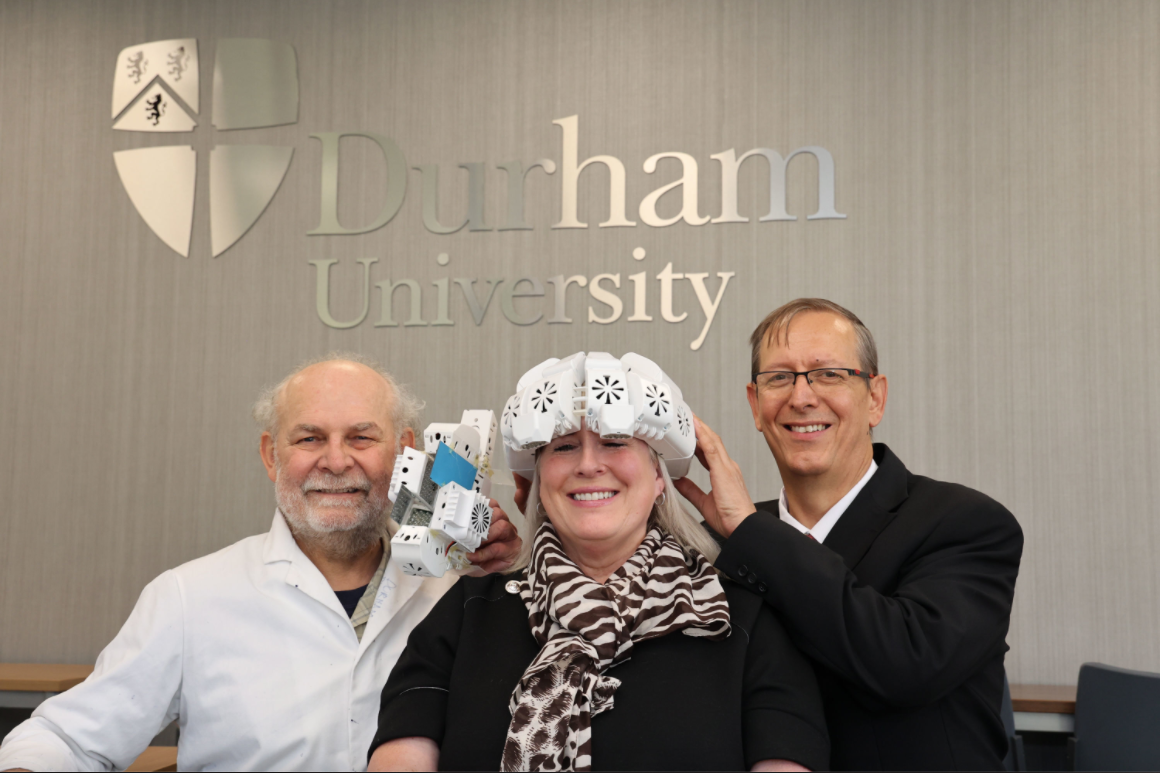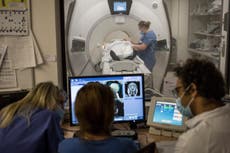Infrared light therapy could help people living with dementia, scientists say
A pilot study, led by Dr Paul Chazot of Durham University and GP Dr Gordon Dougal,

Infrared light therapy could potentially be used to help those living with dementia, researchers have said.
A pilot study, led by Dr Paul Chazot of Durham University and GP Dr Gordon Dougal, used a helmet to beam the light into healthy volunteers’ brains. The results showed improvements in the memory, motor function and processing skills of the volunteers.
As a result, the researchers believe that transcranial photobiomodulation therapy (PBM-T) could benefit people with dementia.
Dr Chazot said: "While this is a pilot study and more research is needed, there are promising indications that therapy involving infrared light might also be beneficial for people living with dementia and this is worth exploring.
"Indeed, we and our US research collaborators recently also published a new independent clinical study which provides the first evidence for profound and rapid improvement in memory performance in dementia."
In the study, published in the journal Photobiomodulation, Photomedicine And Laser Surgery, 14 healthy people, aged 45 and over received six minutes of PBM-T at a wavelength of 2068 nanometres twice a day for a month.
Alongside these volunteers, a control group of 13 people were given a dummy helmet to use.
Results of testing on both groups revealed a significant improvement in performance in motor function, memory and brain processing speed in those who used the real helmet compared to those who were given the placebo.
Devised by Dr Dougal, the £7,250 PBM-T helmet works by delivering infrared light from 14 fan-cooled LED light arrays deep into the brain.
The GP said the helmet "may well help dying brain cells regenerate into functioning units once again".
He added: "Much more research is needed to fully understand the mechanism of action."
Tracy Sloan, 56, used one of the helmets to improve her memory. She works as a GP’s administrator, is healthy and has no diagnosed condition that would affect her memory. However she noted improvement in her daily life after wearing the helmet morning and night for six minutes each time over three months.
“I have a bad memory to start with and I think as you get older it gets no better, so I thought I would give the therapy a go,” she said.
“I wasn’t sure it would make a difference, but to be honest I think it did.
“After a few weeks I noticed that my sleeping pattern was better, I felt more relaxed and I had more energy.”
The study follows 20 years of investigating by Dr Chazot into identifying, developing and validating a particular infrared wavelength for use in dementia treatment.
This all comes after a study in the US indicated infrared treatment had a positive effect on people with mild to moderate dementia.



Join our commenting forum
Join thought-provoking conversations, follow other Independent readers and see their replies
Comments